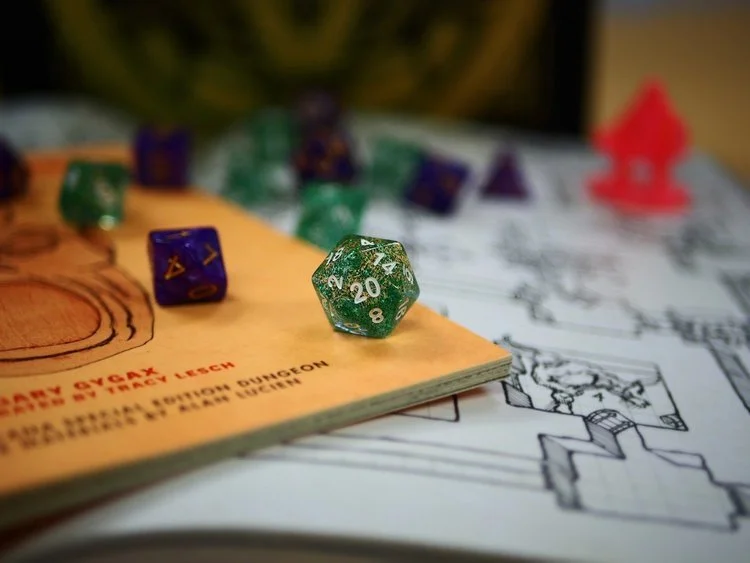D&D: An Interesting Look Into Escapism
We have all read stories of some form as kids. Whether it be the whimsy that comes with a fantasy world full of magic, dragons, and knights in shining armor, the chills and fear that run down your spine from a horror story, or the thought provoking looks into the future that dystopian novels bring. We all have some kind of book or specific genre that we hold near and dear to our hearts when we wish for some form of entertainment. But what of something like the game “Dungeons and Dragons”? A form of entertainment that crosses the line between being a story and being an interactive game? The key factor that separates this format of entertainment from books and other forms of entertainment is its interactive nature. An interactive format that even surpasses things like video games in its diversity of character based decisions.
To begin with, I suppose I should describe exactly what D&D is. D&D is a fantasy based table-top roleplaying game that allows players to create characters that interact with and fight in a world created by the “Dungeon Master” or the person who acts as the story-maker for said world. They control the map, monsters, NPCs (Non-player characters) and make a storyline for the players to follow. To sum it all up, the players act as the protagonists who go through the story the Dungeon Master has created while simultaneously writing the story as well through their interactions with the world. Think of it as the DM has handled the worldbuilding and the characters are then changing things in said world.
What is interesting to see about this entertainment medium however, is how it allows a person to separate themselves from regular reality to one where they control a character that could be drastically different from themselves and, essentially, be able to write and experience a story with others. This concept of figuratively escaping reality is aptly known as “Escapism” or, as the Oxford American Dictionary describes it, “an activity, a form of entertainment, etc. that helps you avoid or forget unpleasant or boring things”. Given that definition, it is easy to see how D&D could be seen as an advanced form of escapism. Not only is the person who is playing the game able to escape from whatever is going on in their real life, they also get to make a character that could represent themselves.
Having been in the Role-playing games club on campus, I have been given a rather decent insight into how people create characters and how they reflect the concept of escapism. The general consensus that I have gained from these interviews is that people tend to make characters in three categories. Self inserts, joke characters, and the serious character concept. Self inserts are rather straightforward. The player makes a character whose values, personality, and overall way of thinking is exactly the same as the player themselves. Often making this version of them their “ideal” version of themself or rather, what they wish to be. The “joke character” is a character concept that is made, quite simply, for the sake of a joke. This can be done through things like making a character with an absurd backstory, making an entirely unoptimized character that can not perform its classes tasks or performs them poorly, or making a character who is an exact copy of a pre-existing character. I.e. making a character who is a copy paste of someone like Superman as an example. Finally, we get to the “serious character”. The serious character is defined as being “no-nonsense” when it comes to playing the game. They take it seriously the majority of the time, not deviating from their, often tragic, backstory and morals in order to do something “out of character” or something out of the ordinary.
After that long winded explanation, you may be wondering how these character archetypes fit into escapism. The answer to that question being that all these character types reflect escapism at its core. As previously mentioned, escapism is the act of escaping reality in order to soothe a person's mind. Providing an “out” as it were for the mind to recover from what is thrown into our realities. These characters, whether being self-inserts, joke characters, or serious characters, are reflections of what we desire outside of our normal grasp. D&D gives a person the freedom to create a character that isn’t bound by the rules of normal reality or the restraints of a video games set narrative. It is a format that lets you make whatever person you want to be, letting you write a story along with the DM and others to make a world that you desire. If escapism is defined as a way of escaping the hardships of reality through a form of entertainment, then would that not make D&D the pinnacle of an act of escapism? A temporary escape from reality to a form of reality that you are in control of. One where you are the master of your own destiny. That is why I believe that D&D provides such an interesting look into the concept of escapism. It is the freedom of making your own world separate from this one.

